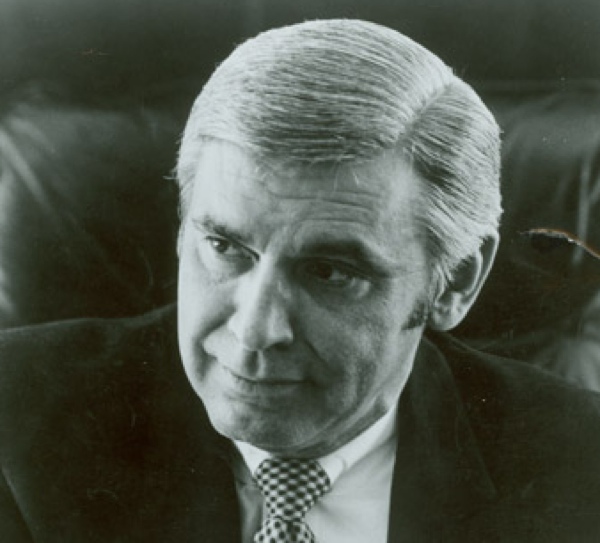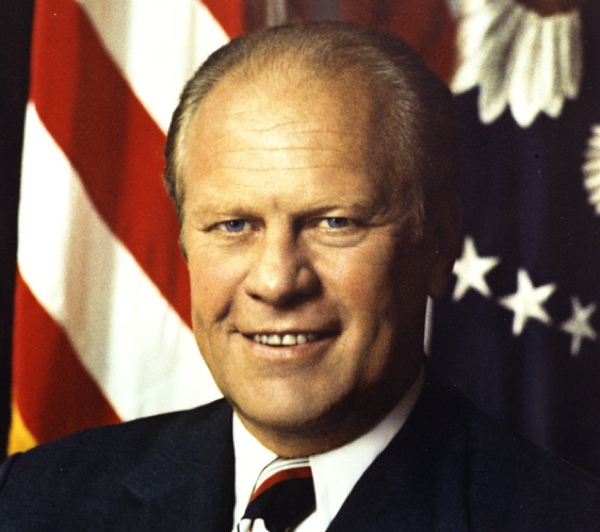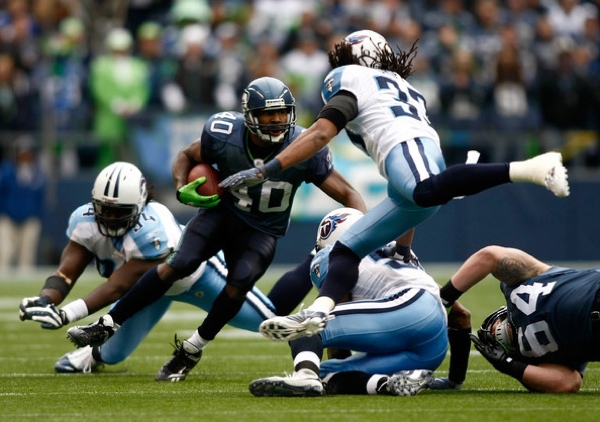 History
History  History
History  History
History 10 “Modern” Problems with Surprising Historical Analogs
 Health
Health 10 Everyday Activities That Secretly Alter Consciousness
 History
History Top 10 Historical Disasters Caused by Someone Calling in Sick
 Animals
Animals 10 New Shark Secrets That Recently Dropped
 Movies and TV
Movies and TV 10 Forgotten Realities of Early Live Television Broadcasts
 Technology
Technology 10 Stopgap Technologies That Became Industry Standards
 Weird Stuff
Weird Stuff 10 Wild Facts About Taxidermy That You Probably Didn’t Know
 Travel
Travel 10 Beautiful Travel Destinations (That Will Kill You)
 Miscellaneous
Miscellaneous 10 Modern Marriage Rituals Born from Corporate Branding
 History
History 10 Extreme Laws That Tried to Engineer Society
 History
History 10 “Modern” Problems with Surprising Historical Analogs
 Health
Health 10 Everyday Activities That Secretly Alter Consciousness
Who's Behind Listverse?

Jamie Frater
Head Editor
Jamie founded Listverse due to an insatiable desire to share fascinating, obscure, and bizarre facts. He has been a guest speaker on numerous national radio and television stations and is a five time published author.
More About Us History
History Top 10 Historical Disasters Caused by Someone Calling in Sick
 Animals
Animals 10 New Shark Secrets That Recently Dropped
 Movies and TV
Movies and TV 10 Forgotten Realities of Early Live Television Broadcasts
 Technology
Technology 10 Stopgap Technologies That Became Industry Standards
 Weird Stuff
Weird Stuff 10 Wild Facts About Taxidermy That You Probably Didn’t Know
 Travel
Travel 10 Beautiful Travel Destinations (That Will Kill You)
 Miscellaneous
Miscellaneous 10 Modern Marriage Rituals Born from Corporate Branding
10 People of Singular and Dubious Achievement
It’s fun to reflect on the things that we human beings are capable of when we put our minds to it, and we love lists that celebrate the human tendency to use healthy competition to strive for the betterment of the human race. Yes, we love to uplift the human spirit of achievement, but . . . not today.
No—the following ten people are different. Some have achieved undeniably remarkable yet utterly pointless things; some can make singular claims to fame which no others can (or would care to) make; most would have great stories to tell, and all pretty much stumbled ass-backwards into history:

Pittsburgh Pirates pitcher Dock Ellis woke up in San Diego on Thursday, June 11, 1970, and kicked off the day by dropping acid, which we don’t recommend. The Pirates were in town to play the Padres on Friday, and Dock figured he had a whole day to kill. He was pumped, although the previous day’s trip to California was a little hazy on account of the acid he’d been on then, too.
Shortly, a friend’s girlfriend informed him that he was mixing up the previous day with the previous two days—that it was in fact Friday, and that he was scheduled to start against the Padres in just a few hours. With no time to waste, Dock jumped in a cab, and before he knew it he was facing down the San Diego starting lineup with his brains coming out of his ears.
Not only did Ellis finish the game, but he pitched easily the best game of his career. This despite his account of the experience:
“I can only remember bits and pieces of the game. I was zeroed in on the glove . . . I remember hitting a couple of batters, and the bases were loaded two or three times. The ball was small sometimes, the ball was large sometimes, sometimes I saw the catcher, sometimes I didn’t. Sometimes, I tried to stare the hitter down and throw while I was looking at him. I chewed my gum until it turned to powder. I started having a crazy idea in the fourth inning that Richard Nixon was the home plate umpire, and once I thought I was pitching a baseball to Jimi Hendrix, who to me was holding a guitar and swinging it over the plate. They say I had about three to four fielding chances. I remember diving out of the way of a ball I thought was a line drive. I jumped, but the ball wasn’t hit hard and never reached me.”
It was under these circumstances that Dock Ellis somehow completed the only no-hitter of his career. He never used LSD during a season—let alone a game—ever again.

Press Your Luck was an American game show of the 1980s, in which contestants would hit a plunger to stop a randomly shifting game board. The spaces on the board contained cash, prizes, and “Whammies”—little animated elves that would steal all of your cash should you land on one. In 1984, ice cream truck driver Michael Larson discovered with the help of his VCR’s pause button that the movements of the board were actually not random, but only appeared that way. Though the pattern was complicated, there was a pattern nonetheless. One that could be memorized.
Larson appeared on the only episode of Press Your Luck to be broken into two parts, aired over two days in June of 1984. It had to be—he couldn’t stop spinning. After nervously landing on a Whammy on his first attempt, Michael spun forty-five consecutive times without hitting another one.
He broke the bank, clearing $110,000 dollars—a record that still stands for single-day winnings on game shows with returning champions. After careful investigation, it was determined that technically, there was no rule against memorizing the board, and he was allowed to keep his winnings. Needless to say, he was not invited back and the board was reprogrammed to prevent others from exploiting the same weakness.

Elaine Davidson first claimed the record for most piercings in a single human being in 2000, when the Guinness Book recognized her 462 piercings. Crazy, right? Well, she didn’t stop there. She wasn’t even getting started; in fact, she currently has more piercings than that lowly number in her genitals alone.
You read that correctly. Elaine counts some 1,500 of her current piercings as “internal”—and we don’t want to know where the others are. Her count now exceeds six thousand. Six thousand piercings, and she seems unlikely to stop anytime soon—unless she literally runs out of skin to pierce.
Says Elaine: “I don’t enjoy getting pierced, but to break the record you have to get to a high level. I wanted to break the record.” Elaine: your record is safe. We think it’s okay to stop now.

The Jonestown Massacre was an unbelievable tragedy that played out in November 1978, at cult leader Jim Jones’ Peoples’ Temple settlement in Guyana. More than nine hundred people lost their lives—among them the only United States Congressman to die in the line of duty, Leo Ryan.
Jones had been drawing the attention of the government for years, as cult members trickled back to the mainland U.S., telling stories of abuse and human rights violations. Ryan was chosen to lead an investigative committee to the island, along with future Vice President Dan Quayle, who was unable to make the trip.
After conducting interviews with several cult members who expressed their wishes to leave and finding that they felt they were being detained, Congressman Ryan was ambushed with a knife while intervening in a family dispute; having seen enough, the entire party fled to the airport.
While aboard the small six-seat plane that was to take them home, the party was fired upon by Larry Layton, who was also on board the aircraft. Peoples’ Temple members outside the plane also opened fire; three journalists, a defecting cult member and Congressman Ryan were killed. Ryan is still the only member of Congress to lose his life in the course of performing his duties.

Mr. Henry Earl of Lexington, Kentucky, likes to drink. He likes to drink in public, and apparently he is also fond of getting arrested for public intoxication. Henry is perhaps the only person on Earth with his own Wikipedia page dedicated simply to his love of getting arrested for drinking in public, and with good reason; if anyone in history, let alone anyone currently living, has been arrested even half as many times a Henry, we’d love to hear about it.
Here’s all you need to know about Henry (aside from the above mugshot collage): in 2008, it was reported that he had been arrested for the 1000th time since 1992. The judge in the case heard about it, and handed down a thousand-day jail sentence, apparently just to be a smart-ass. It may very well have been his thousandth arrest since 1992—but whoever was doing the reporting failed to mention whether he had been arrested before 1992.
Website The Smoking Gun discovered that he had been—a lot. Beginning in 1970. And they discovered that, in fact, his 1000th arrest had occurred in 2002, six full years earlier—and that his current count was somewhere over 1,300.
Henry has currently spent roughly twice as much of his life in jail as he has out of it; as of this writing, his last arrest was a few months ago. We suppose there’s something to be said for sticking with what you know.

Gerry Ford always seemed like a nice enough guy. He was the President who moved in next door to the Simpsons after George Bush Sr. moved away in the classic Two Bad Neighbors episode; in fact, it’s pretty much that bland kindness and something of an outward appearance of slow-wittedness that makes him so forgettable among U.S. Presidents. Well, that and the fact that he was never elected—not even as Vice President, on any ticket. He was appointed VP by Richard Nixon.
Spiro Agnew was Nixon’s Vice President on the the victorious 1972 ticket, but he resigned amid a bribery scandal and criminal charges—the only VP to ever do so (he also ponied up a quarter of a million dollars in a civil suit a decade later). Ford, House Minority Leader at the time, was appointed Vice President in Agnew’s place; and when Nixon was impeached after the Watergate scandal and resigned from office in 1974, Ford became President by default.
So it may have taken two unprecedented resignations after colossally unethical actions by two of the most powerful figures in the world, but Gerry got to be President for two years before being defeated by Jimmy Carter in 1976, and in those two years he had to survive an assassination attempt. We think he got a pretty raw deal for such a nice guy.

Nobody ever said that the system for determining NFL Playoff seeds is perfect. There may be no perfect system, and with inter-division and inter-conference play, division records, common opponents, and all kinds of weird-ass factors determining who gets what seed, one thing remains constant and simple: within each division, the team with the best record is the division champion. Division champions always host at least one playoff game (this is relevant).
It just so happens that in 2010, the NFC West was not only the weakest division in football, but may have fielded the weakest division ever in the history of football. At 7-9, the Seattle Seahawks ended up winning that division. The team won rightfully, as they started poorly but were playing pretty good ball by late in the season—and, unbelievably, hosting a home playoff game against the Saints the next week, which they won.
Among the many very strange implications of this on the 2010-11 season: the Raiders, despite being undefeated in their division, failed to win the division or even to make the playoffs (Seattle’s division record: 4-2). Two teams, the Giants and Buccaneers, failed to make the playoffs despite posting 10-6 records. The 11-5 Saints (second in their division) had to travel to face a 7-9 team in the first round of the playoffs; the Seahawks hosted that game in the Wild Card round, despite being division champs. Up was black; green was across. None of it made any sense until the Seahawks got their asses handed to them by the Bears in the divisional round.

The Golden Raspberry Awards—or the “Razzies”—are that venerable institution known for taking the piss out of Hollywood once a year by pointing out its most laughable achievements. It’s a valuable service indeed, and there are always a few odd surprises and the occasional winner who shows up to claim his award in person. Halle Berry famously accepted her award for Catwoman, thanking the studio “for casting me in this godawful, piece of shit movie. It was just what my career needed.”
It is Sylvester Stallone, however, who holds the dubious honor of most nominations (thirty) and most wins (ten). He won his first Razzie in 1984 for Rhinestone, and his most recent triumph was in 2003 for Spy Kids: Game Over. In addition, one of those is a sort of lifetime achievement award: “Worst Actor Of The Century, For 95% Of Everything He’s Ever Done.”
Hot on Sly’s heels for a while was Madonna, with a whopping nine wins against only half as many nominations. But Madonna is unlikely to appear in any more movies, while Stallone keeps making Expendables films—so his towering record seems likely to stand.

In 1983, Vanessa Williams became the first African-American to win the Miss America pageant. Miss America was even a bigger deal then than it is now, and Williams’ win was a point of pride among the American black community.
Then came Bob Guccione, publisher of Penthouse magazine. It seems that a couple of years prior to her Miss America victory—just after turning eighteen—Williams had posed for some nude photos with photographer Tom Chiapel.
Apparently, Chiapel had told her that the photos would be taken in silhouette. But they were not, and when Williams won the title, Chiapel began shopping them around to the highest bidder. Playboy’s Hugh Hefner turned down the photos, mindful of the embarrassment it would cause Williams; Guccione had no such qualms, and published them in Penthouse’s 1984 15th Anniversary issue. Williams stepped down over ten months into her reign, and runner-up Suzette Charles stepped in for the remaining seven weeks—the shortest ever reign for a Miss America.
Today, Williams is recognized as Miss America 1984 with Charles having a (b) next to her name in the official record. Here’s an interesting aside about the Penthouse issue in question: that month’s centerfold was shamed porn star Traci Lords—who was later found to have been fifteen when the pictures were taken, making this probably the most notorious girlie mag of all time for multiple reasons.

The 1998 Winter Olympics in Nagano was the first to feature snowboarding as a medal event. Canadian Ross Rebagliati beat the pants off the competition to take home the gold, but there was a problem: shortly after the performance, he was tested for drugs, and was indeed found to have been doping. But not with performance enhancers . . . with dope. Marijuana, that is. As a result, he was briefly stripped of his gold medal—the only time that’s ever happened due to pot use.
Ross claimed that the last time he used marijuana was in April 1997, and that the positive test was the result of the “significant amount of time he spends in an environment with marijuana” which actually sounds pretty plausible. Except when considering that you would have to spend days in a pot-smoke-filled room to achieve such a result—but we digress. Ross employed the “Aw, come on!” defense in his appeal, and was eventually given back his medal.
Now, to be clear, they weren’t saying that he was using weed to enhance his performance, or that he was high during his medal-winning run. But suppose he was? Sports columnist Tony Kornheiser suggested that if this had been the case, they should not only have let him keep the medal, but should have built a statue of him at the base of the run.
Mike Floorwalker blogs, Tweets, writes, edits and occasionally sleeps.








